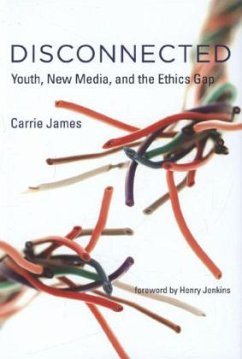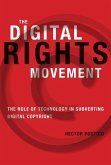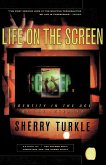Drawing on extensive interviews with young people between the ages of 10 and 25, James describes the nature of their thinking about privacy, property, and participation online. She identifies three ways that young people approach online activities. A teen might practice self-focused thinking, concerned mostly about consequences for herself; moral thinking, concerned about the consequences for people he knows; or ethical thinking, concerned about unknown individuals and larger communities. James finds, among other things, that youth are often blind to moral or ethical concerns about privacy; that attitudes toward property range from "whats theirs is theirs" to "free for all"; that hostile speech can be met with a belief that online content is "just a joke"; and that adults who are consulted about such dilemmas often emphasize personal safety issues over online ethics and citizenship.
Bitte wählen Sie Ihr Anliegen aus.
Rechnungen
Retourenschein anfordern
Bestellstatus
Storno







